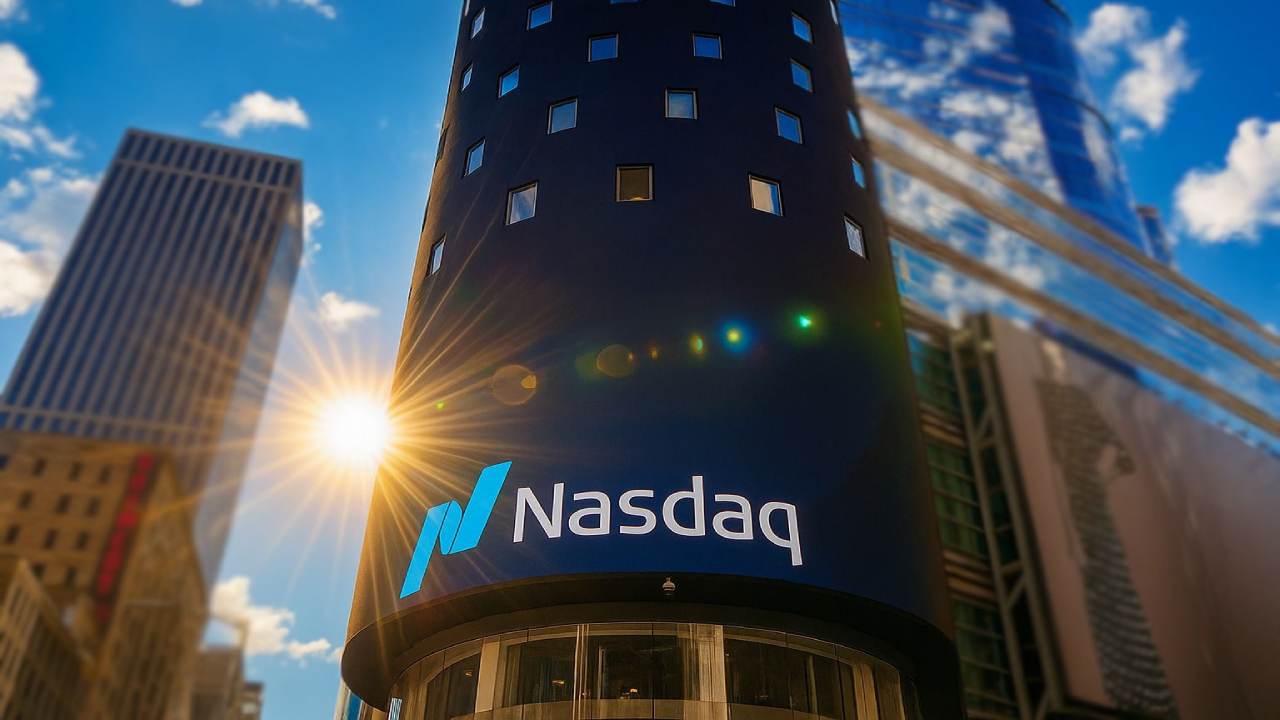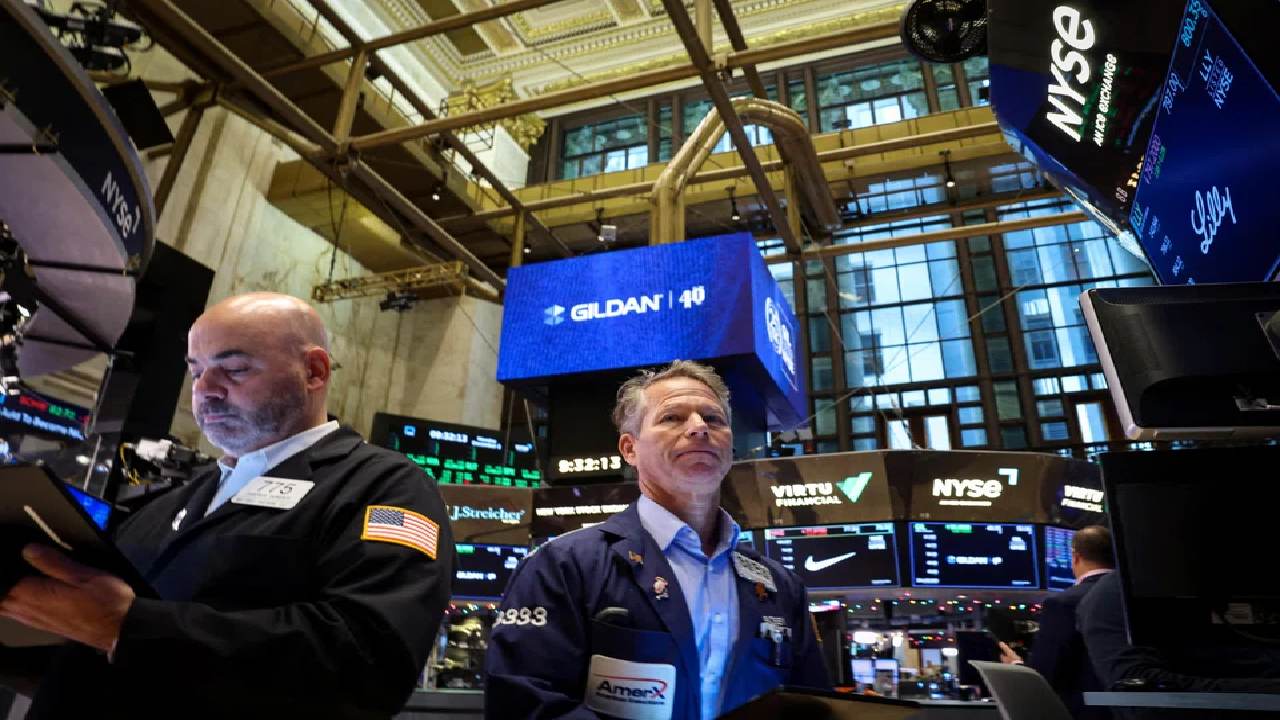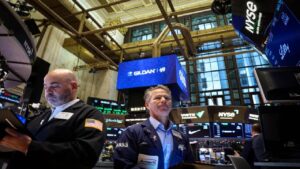Wall Street on Edge: Nasdaq Plunges as the AI Dream Faces Its First Real Test
Ohana Magazine – The Nasdaq Composite ended the week in decline, recording its sharpest drop since April. The tech-heavy index fell 3.04% over the week, closing Friday 0.21% lower. The setback followed months of optimism fueled by artificial intelligence gains. Meanwhile, the S&P 500 managed a small 0.13% rise, and the Dow Jones Industrial Average added 75 points after recovering from a 400-point slide. Despite the rebound, investor confidence remains shaky. Concerns about tech valuations and fears of an AI bubble are spreading. Even Wall Street’s biggest optimists are growing cautious, signaling a shift from excitement to unease.
AI Stocks Pause After a Relentless Surge
For much of the year, AI optimism powered a historic market rally. But this week, the momentum finally slowed. Analysts say the pullback is not a crash but a needed pause after months of runaway gains. The CBOE Volatility Index, known as Wall Street’s fear gauge, spiked 16% before leveling off. CNN’s Fear and Greed Index slipped into “extreme fear,” its lowest reading since April. As profit-taking hit the market, investors began questioning whether the AI sector’s meteoric rise had run too far, too fast.
“Read More : The Unshakable Rebellion: How the Anti-Trump Wave Is Redefining America’s Political Future in 2025“
Wall Street Warns of Overvaluation in Tech
Caution dominated Wall Street’s tone this week. Executives from Goldman Sachs and Morgan Stanley warned that AI valuations might be overstretched. Scott Wren, Senior Global Equity Strategist at Wells Fargo Investment Institute, said “early signs of stress are showing beneath the surface.” For years, AI and tech firms have driven the stock market’s rise. Now, investors are asking if profits can keep up with prices. As enthusiasm cools, analysts emphasize that innovation alone may not justify the sky-high valuations that have defined the past two years.
Big Tech Titans Take a Hit
The biggest names in AI saw steep losses. Nvidia (NVDA) dropped 7.1% this week, while Palantir (PLTR) sank 11.2% their sharpest declines since April. Oracle (ORCL), which soared 36% in one day back in September after announcing a deal with OpenAI, has now erased nearly all of those gains. Its shares fell another 8.89% this week, marking its worst performance of the year. “Investor positioning has become stretched,” said Garrett Melson of Natixis Investment Managers, warning that even small disappointments could spark heavy selling in the weeks ahead.
“Read More : Germany’s Love Affair with Bread: A Slice of National Pride“
OpenAI’s Comments Stir Fresh Uncertainty
Amid the volatility, OpenAI added fuel to the market’s anxiety. Executives suggested that government help might be needed to fund its $1.4 trillion AI infrastructure plan. The remarks drew criticism and shook confidence in the company’s financial stability. “Every major tech firm has linked itself to a partner that might not meet its obligations,” said Mike O’Rourke of JonesTrading. The statement reinforced fears that even the giants of the AI industry may be overextended, introducing new doubts about the sustainability of the sector’s explosive growth.
The Government Shutdown Adds More Pressure
While AI headlines dominated the market, another concern lingered the U.S. government shutdown, now the longest in history. The ongoing political standoff continues to unsettle investors and hurt consumer confidence. A University of Michigan survey reported that sentiment has fallen to its lowest level since mid-2022. “The longer it lasts, the greater the damage to Main Street,” said David Russell of TradeStation. Late Friday, Senate Minority Leader Chuck Schumer announced a Democratic proposal to end the impasse, briefly lifting market spirits. Yet, few believe the shutdown will end soon.
A Shaky Market Searching for Direction
Despite the turbulence, some analysts remain hopeful. Larry Adam from Raymond James said the mounting travel disruptions and food benefit delays might push lawmakers to act. Others, like Wells Fargo’s Wren, believe a pullback could offer buying opportunities for long-term investors. Still, with AI valuations under scrutiny and Washington’s gridlock unresolved, Wall Street remains tense. The once-unbreakable confidence in tech innovation has given way to a more cautious mood one shaped by reflection, realism, and the realization that even the strongest rallies eventually need to rest.













